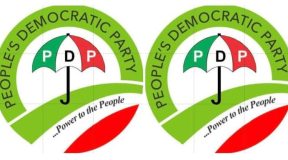By Onoh Chukwuma Richard
Envisage beyond 2023, as you support a candidate and don’t support a candidate because you stand to be rewarded.
Over the years, Nigeria has witnessed retrograde in infrastructure, economy, health, education amidst the abundant natural resources at our disposal. Nigeria has failed to produce leaders capable of piloting the affairs of the nation because of cronyism, ethnic sentiment, and selfishness.
It will interest the public to note that a political leader’s motivation to run for public office can affect the quality of decisions and public policies adopted and implemented should they be successful. Their motivation might include self-identity, self-interest, enrichment, salaries, etc.

In particular, the significant opportunities for rent-seeking (the practice of manipulating public policy or economic conditions as a strategy for increasing profits) in public office in Nigeria have often attracted many politicians with a focus on extracting rents.
It is therefore important to consider what type of formal and informal rent structures exist in Nigeria’s elected offices that attract these individuals, rather than candidates with a public service focus, and what system exists to scrutinize, expose and check these excesses; improve checks and balances that reduce rent extraction and greater scrutiny of political behavior.
It is pathetic that in Nigeria leaders are elected based on nepotism rather than meritocracy. What they want to get, how to get it, and when to get has become the order of the system. It is imperative to state that Nigeria will not grow until our patriotic consciousness outgrows from “class in itself” to “class for itself”.
We need to elect people into public offices based on character, competence, and capacity to function properly. For instance, you don’t elect a mechanical engineer to head surgeons in a hospital and be expectant of good results. The country has witnessed how professors of education were made ministers of transportation and doctors became ministers of finance, vis-a-vis, and the result is nothing to bring to the table.
Every citizen must therefore hold public officials accountable. The media, civil society groups, and the public should play a critical role in public disclosures about politicians’ performance through their engagements and investigation. The race towards improving accountability and good governance in Nigeria begins now and the power is in the people’s hands. The focus should be on encouraging the election of candidates who are trustworthy, competent, and committed to serving in the public’s interest, building Nigeria, its citizens, and the young people.




